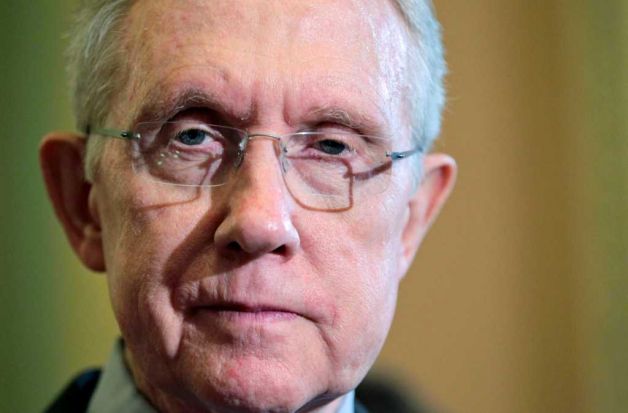What's keeping Congress from passing an extension to the federal budget? Democratic protection of automobile subsidies.

After midnight last night, the House finally managed to narrowly pass a budget extension bill, but Senate leaders have already rejected it out of hand, since it includes about half the disaster relief they'd like and cuts $1.5 billion from a clean-fuel technology manufacturing program for the auto industry.
The disagreement is strong enough that it threatens to keep Congress in session longer than intended -- likely through the weekend, and possibly even into next week's scheduled recess.
That gives them a week, if necessary, to avert a government shutdown -- the potential consequence of inaction on a bill to extend federal government spending past September 30.
Clean vehicles are great, but if Democrats really want to meet important environmental goals, just imagine how much good they could do by spending that $1.5 billion to implement better bus systems or provide emergency assistance to transit agencies struggling to keep up with higher ridership.
In addition to highlighting how Senate Democrats highly prize car subsidies, this situation also puts in perspective the brewing fight over the FY2012 budget. If Congress can't even pass a simple extension to keep government operations for a few months, with just a few billion dollars' difference, how will they ever agree to bridge the enormous gap between their visions for FY2012?
Meanwhile, Congress is learning, or perhaps not learning, that they can't expect to pass clean extensions at the last minute when they can't agree or aren't ready to take a pass new legislation in time for the old legislation to expire. Extensions are rarely "clean" anymore, and the new items in them are often cause for rancorous debate.
Lawmakers are still optimistic that they'll make a deal, and experts caution against too much hysteria over a possible government shutdown, since every budget vote in recent memory has gone down to the wire, and somehow lawmakers always figure something out, usually without missing any of their recess time. In comparison with some of those epic fights, this skirmish over a few billion dollars seems easily solved.
However, it does remind us of a similar situation earlier this year, when the country found itself on the brink of a shutdown. Streetsblog asked transportation agencies and industry officials what a shutdown would mean for them. AASHTO said states wouldn't be able to get reimbursed for transportation spending, totaling about $100 million a day. An official from Dallas Area Rapid Transit said a shutdown would only present a serious problem if it dragged on for months, but the agency could handle a few weeks without federal reimbursements. Construction industry leaders, already fed up with inaction on Capitol Hill from the two-year delay in passing a new transportation bill, seemed resigned to coping with the problems Washington presents them.





